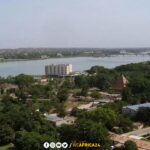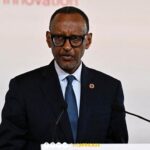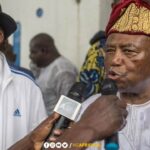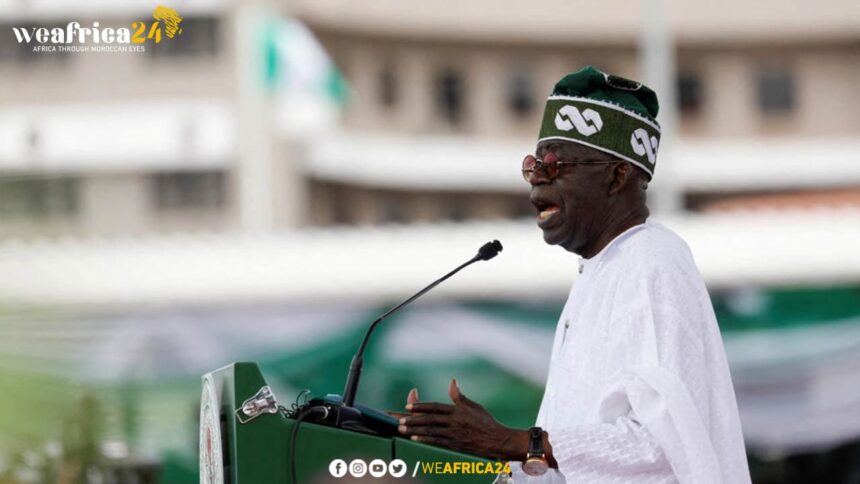President Bola Tinubu delivered a speech on Wednesday, June 12th, to mark Democracy Day, celebrating 25 years since the country’s return to civilian rule in 1999 after decades of military dictatorship. In his address, President Tinubu staunchly defended his controversial economic reforms, which include the suspension of certain fuel import subsidies and the devaluation of the national currency, the naira.
With inflation nearing 40%, President Tinubu reiterated his commitment to “repairing the economy” at any cost. He expressed empathy for his fellow Nigerians, who are struggling with skyrocketing prices and, in some cases, difficulty in affording necessities.
“There is no doubt that my reforms have caused hardship, and I feel your pain. However, these measures are necessary to repair the economy in the long term and ensure access to opportunities for all. (…) While we are fixing the economy, I continue to listen to you and will not turn my back on you,” he declared.
President Tinubu also addressed the ongoing negotiations regarding the increase in Nigeria’s minimum wage. The government currently proposes a base salary of 62,000 nairas (less than 40 euros), while unions are demanding a minimum of 250,000 nairas per month.
“In response to calls for strikes, we have not sought to oppress or suppress workers, as a dictatorial government of the past might have done. Instead, we have chosen conciliation over conflict,” he stated.
President Tinubu announced that the proposed minimum wage legislation would be presented to the Nigerian Parliament “very soon.”
In summary, while acknowledging the hardships caused by his economic reforms, President Tinubu emphasized their necessity for long-term economic stability and growth. His approach to negotiations with workers’ unions highlights a preference for dialogue and conciliation over confrontation. The upcoming legislative action on the minimum wage will be a critical step in addressing the economic challenges faced by Nigerians.







